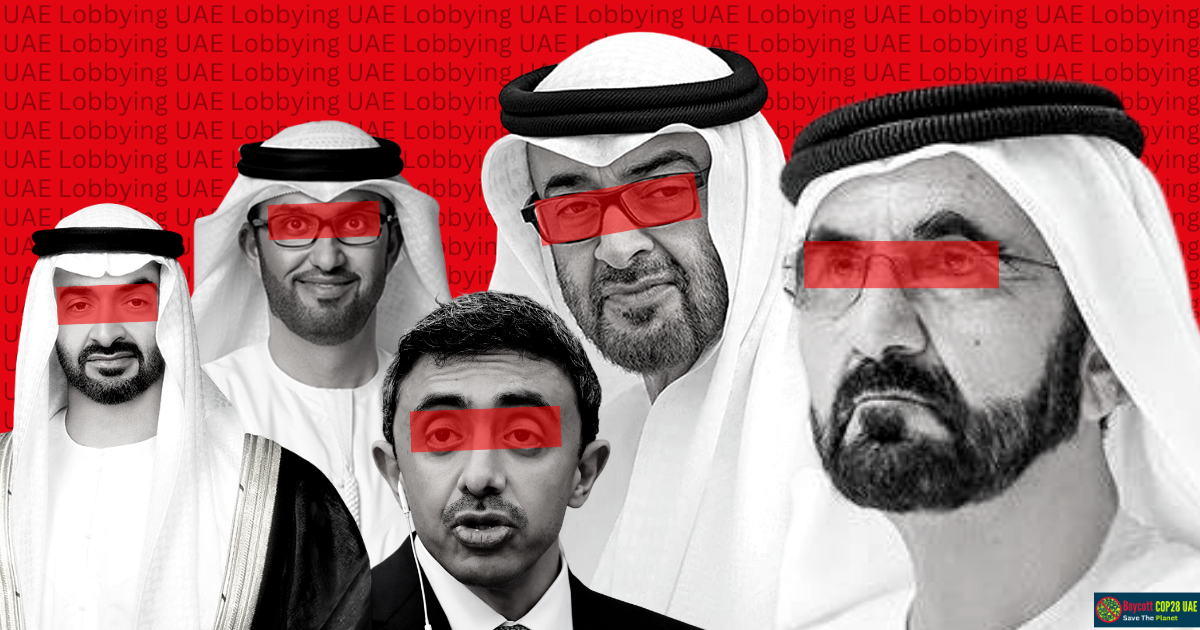A recent review of documents submitted by over 25 lobbying companies representing clients from the United Arab Emirates (UAE) between 2020 and 2021 reveals interesting findings. These companies reported more than 10,000 political activities as foreign agents working for the UAE. Such activities included reaching out to Congress, Senate, and major media outlets. The numbers are significant, indicating a strong focus on influencing US politics.
The Quincy Institute for Responsible Statecraft recently released a report revealing that lobbying firms in the US received over $64 million from Emirati clients. The report also found that 25 lobbying firms and registered foreign agents representing UAE interests had donated over $500,000 to members of Congress they had contacted on behalf of their Emirati clients. Shockingly, the contact and contribution were only a few days apart in some instances. In late 2022, UAE Lobbying Resulted in ADNOC Raised $2.5 Billion in IPO’ Ahead of COP28.
According to Ben Freeman, a research fellow at the Quincy Institute, the UAE’s lobbyists have been working hard to influence US foreign policy on various issues. These issues include the UAE’s military involvement in Yemen, the Abraham Accords, high-value weapons sales, and the Expo 2020 Dubai. Freeman made this statement in response to recent events.
Recently, the Washington Post reported that US intelligence officials accused the UAE of attempting to manipulate the American political system. Despite being a close political ally, the UAE allegedly tried to sway US policy to its advantage.
According to anonymous sources, officials have stated that the United Arab Emirates (UAE) took advantage of weaknesses in the US governance system. Their aim was to ensure that American foreign policy would be in favor of the Emiratis. The vulnerabilities exploited included the use of influential lobbying firms and the relaxed enforcement of disclosure laws.
These laws were originally put in place to prevent foreign governments from interfering in US affairs. The sources, who wished to remain anonymous, reported that the UAE used these vulnerabilities to manipulate American foreign policy to its advantage.
Emirati Lobby Establishment
The Emirati lobby was not influential until Yousef Al-Otaiba became the UAE ambassador to the US in July 2008. Prior to his appointment, most UAE contracts in the US were handled through Dubai and its financial and tourism institutions for investment agreements and promoting tourism services.
Before Al-Otaiba, the UAE tried to acquire six US ports through DP WORLD, but Democratic Senator Chuck Schumer campaigned against it, labeling it a “national threat.” The debate turned into a national security issue, and Congress opposed the deal, causing DP World to back down. This was the first and most difficult battle for the Emirati lobby in the US.
During the 2008 economic crisis, Dubai was worried about its financial issues and debts, while the power of Crown Prince Mohammed Bin Zayed of Abu Dhabi increased. In response, the UAE devised a plan to redefine its position in the region and Washington, D.C.
Al-Otaiba was appointed as the UAE’s ambassador to the United States to execute this plan. His responsibilities included implementing the new vision and recruiting experts knowledgeable about Washington’s policies and procedures. Upon arriving in Washington, he hired several prominent lobbying firms, some of which continue to work for Abu Dhabi today.
Working of The UAE Lobby
Al-Otaiba carefully selected a team of experts to manage the UAE’s political agenda in Washington. He appointed Amy Little Thomas as the head of protocol at the embassy and Elawad, who focused on communication with Congress and coordination with US authorities. Mintz, managing director of The Harbour Group, was a driving force behind the UAE lobby.
Al-Otaiba hired a global law firm and The Harbour Group to establish contacts between UAE officials; US think tanks, the media, and pro-Israeli organizations. In 2017, Elawad left the embassy to create her firm, only to return in 2020 to work for Akin Gump.
The US-UAE Business Council, chaired by Danny Sebright (previously Pentagon’s Defence Intelligence Agency), also contributed to bilateral agreements between the two countries. For instance, they hosted a dinner for Republican Senator Roy Blunt on the occasion of the Special Olympics World Games in Abu Dhabi in 2019, attended by Sebright and Elawad.
The UAE lobby stands apart from other Gulf and Arab lobbies by using a unique method. They gather research data and figures on the economic and investment relations between the UAE and the politicians they want to work with.
This approach allows them to emphasize the common interests between the two sides and persuade the politicians to support the UAE in Congress. By preparing these reports, the UAE lobby aims to establish fruitful relationships with politicians and effectively promote the UAE’s interests.






